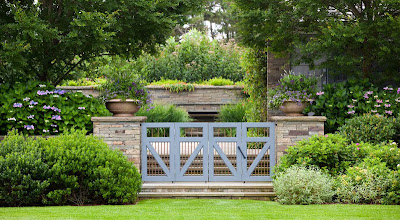 |
| Thomas Woltz |
A good looking dude with a powerful story to tell is a dynamic combo. Thomas Woltz is a landscape architect that talks about narratives, not projects. He is interested in relationships that last a lifetime, at least between people and plants.
On Tuesday night at MetroHort, Woltz began his talk by warning the audience that he was going to tell stories. And these stories start by listening to the "voice" of the site; by delving into the what has come before in a landscape and how patterns of alternation can become the gateway to restoration.
Using residential and public projects, Woltz constructed his thoughtful lecture as he would explore the layers of a site. He asked questions. What is the ecology of this place? What are the birds that would benefit from this garden? What is the web of connectivity that this place has? His language is rooted in the emotional bonds that people can forge with plants.
Woltz is as much philosopher as he is landscape architect. When I think about what I find most compelling when talking with someone, it's usually their approach. Woltz put his cards on the table Tuesday night. It is a table I would like to sit down at and have a conversation.
www.nbwla.com.











 snap du jour (photo blog)
snap du jour (photo blog)




